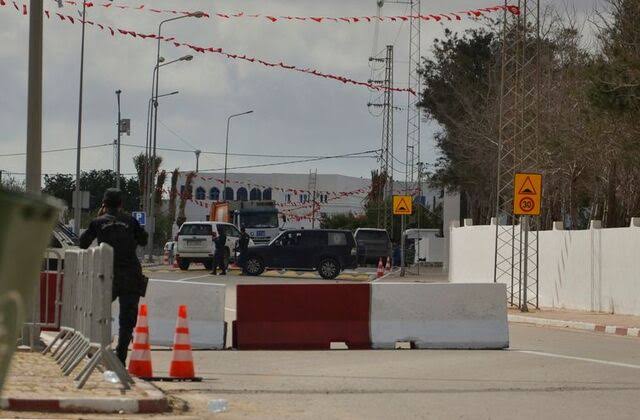In a tragic incident on the island of Djerba, Tunisia, a synagogue shooting claimed the lives of six individuals, making it the country’s deadliest attack in years.
President Kais Saied, attributing the violence to “criminals” aiming to undermine the tourism sector, expressed his concern over the incident.
The assailant, identified as a member of the National Guard, initially killed a colleague at a naval installation before proceeding to the synagogue where an annual Jewish festival was underway.
He opened fire on both police officers and visitors, prompting security forces to respond and fatally shoot him.
Among the casualties were two Jewish cousins, one of French-Tunisian descent and the other Israeli-Tunisian, as well as a police officer who succumbed to injuries at the scene.
Another officer passed away in the hospital on Wednesday.
Hospital sources revealed that four additional police officers and four visitors sustained injuries, with one of the officers reported to be in critical condition.
President Saied, extending condolences to the affected families and wishing a speedy recovery to the injured, stated, “The goal was to sow the seeds of discord and to hit the tourist season and the state.”
However, he did not explicitly mention the shooter’s targeting of the Jewish community, refrain from addressing anti-Semitism, or label the incident as an act of terrorism.
Notably, the president has previously used the term “terrorism” to describe the actions of his political opponents since assuming extensive powers in 2021.
He emphasized that Tunisia is known for its “tolerance and peaceful coexistence.”
Israel, the United States, and France expressed their condolences following the tragic event.
Eyewitnesses attending the pilgrimage described a scene of panic as gunshots rang out, leading people to seek shelter in various rooms of the synagogue.
Peres Trabelsi, the head of Djerba’s Jewish community, recounted, “People were happy and dancing until we heard a lot of gunfire. Everyone ran away… some hid in my office and others in the other rooms. There was lots of fear.”
Rene Trabelsi, Tunisia’s former tourism minister and organizer of the pilgrimage, stated that the assailant arrived at the scene on a quad bike while wearing body armor.
He revealed that the two cousins attempted to hide behind a bus outside the synagogue when the shots were fired.
“We heard the shots and knew it was related to an attack,” Trabelsi added, mentioning that he was inside the synagogue with his family when the shooting commenced.
The pilgrimage to Africa’s oldest synagogue consistently attracts hundreds of Jewish individuals from Europe and Israel to Djerba, which is located approximately 500 km (300 miles) from the capital city of Tunis.
Ever since an al Qaeda truck bomb targeted the synagogue in 2002, claiming the lives of 21 Western tourists, the pilgrimage has been subject to stringent security measures.
Tunisia, a predominantly Muslim nation, boasts one of North Africa’s largest Jewish communities, with around 1,800 members.
The country’s economic challenges have also prompted a considerable exodus of Tunisians to Europe.











